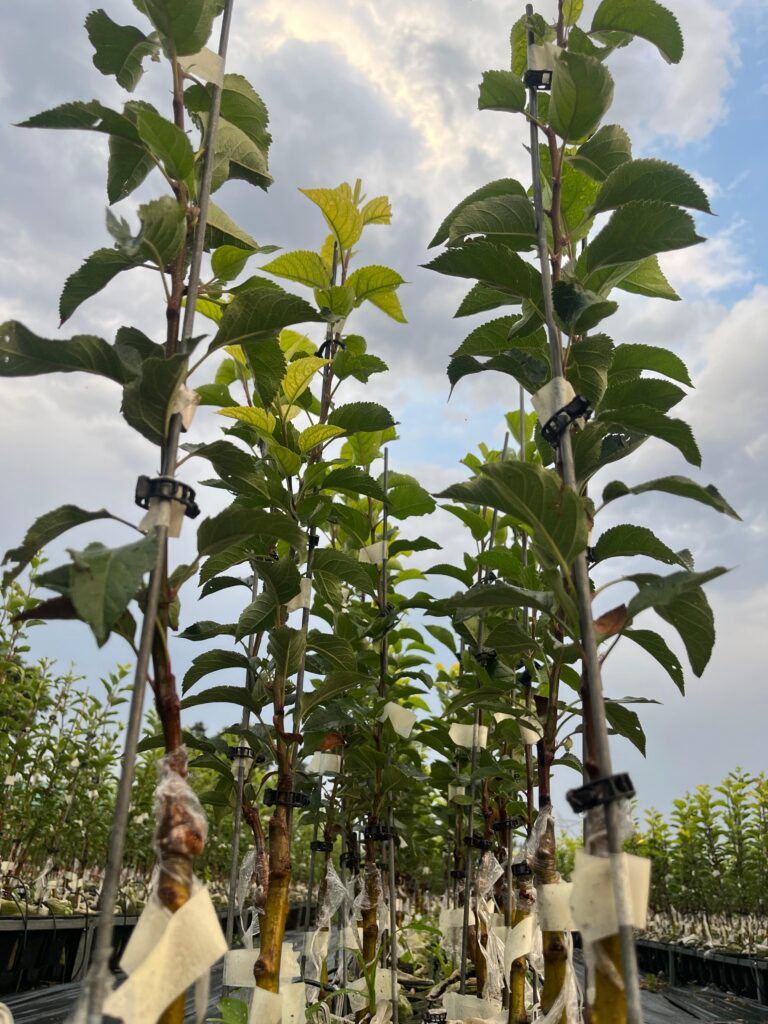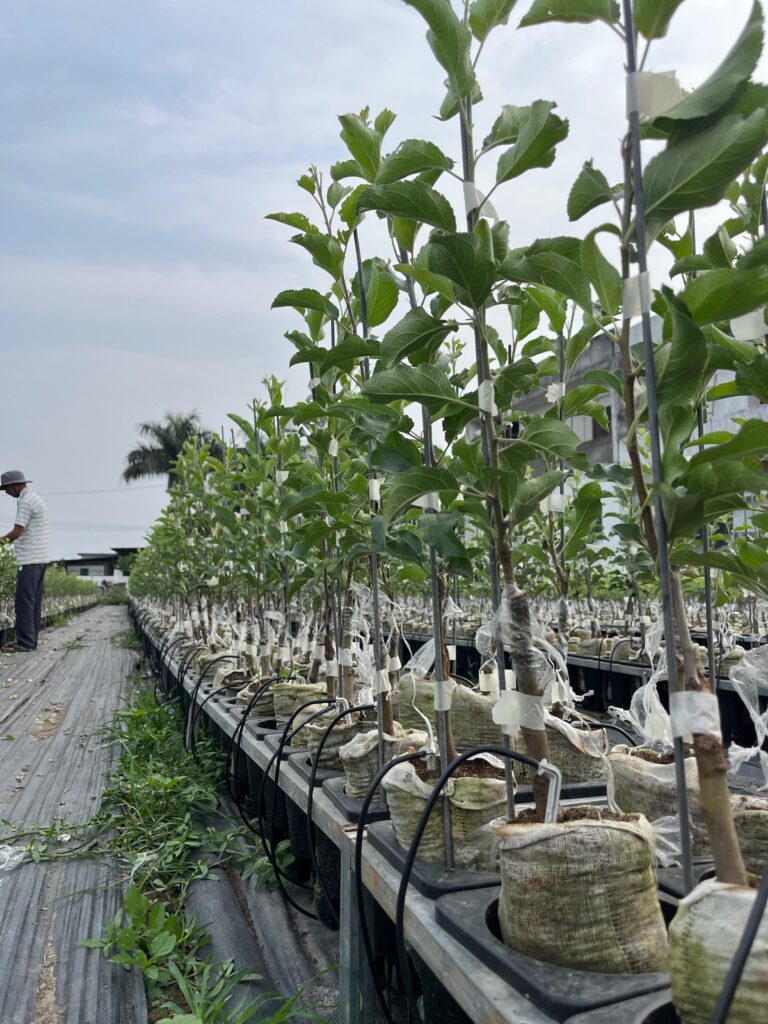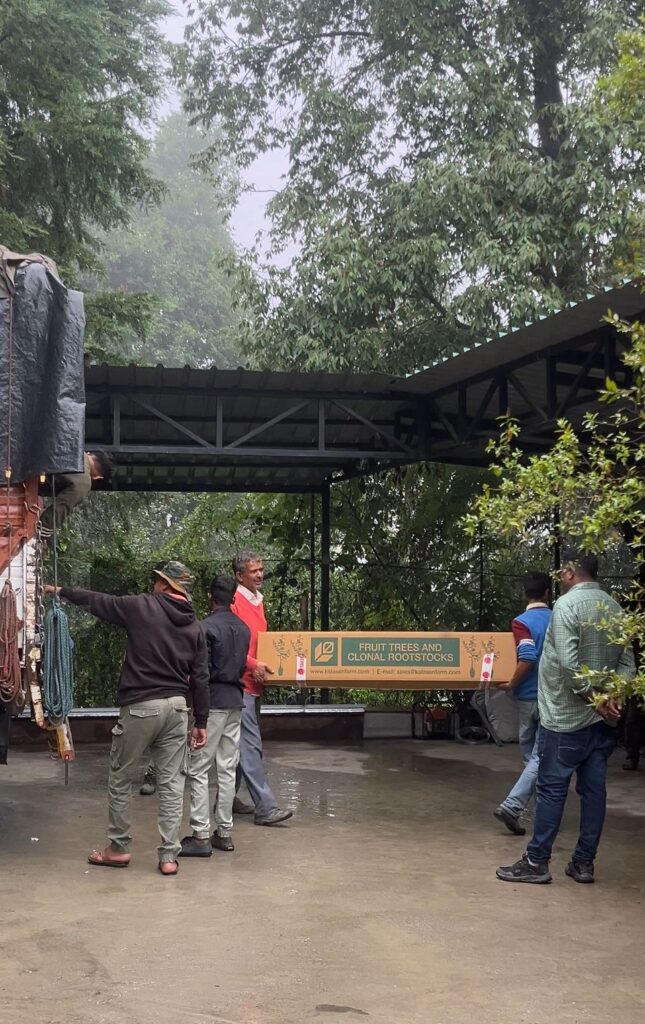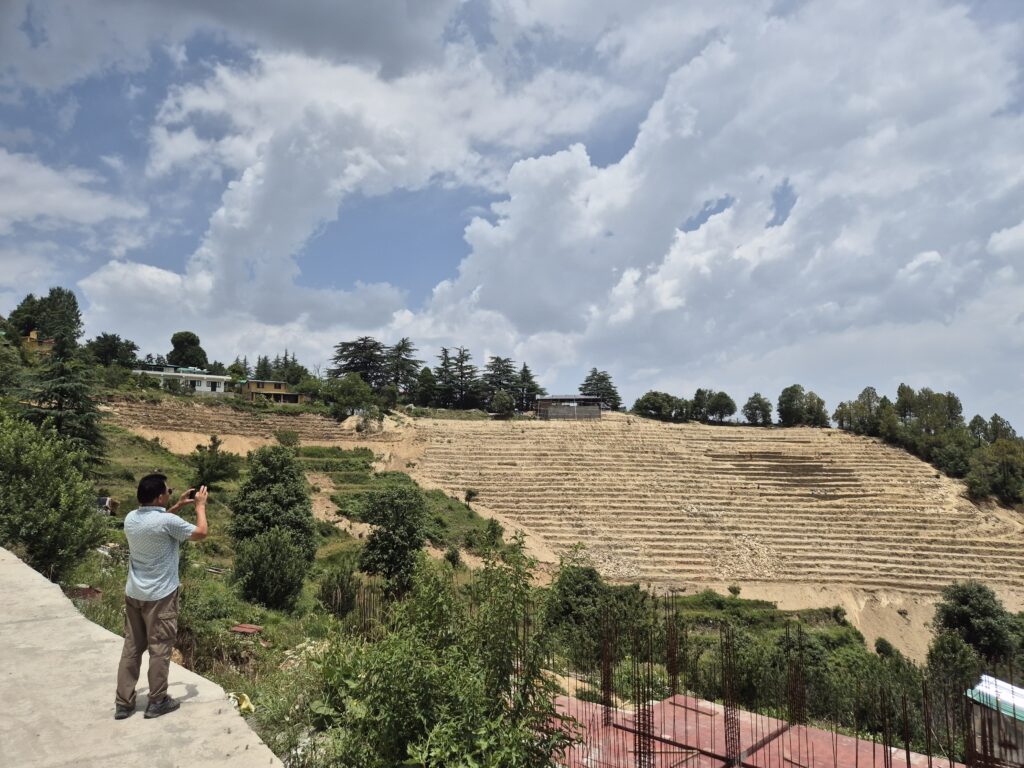Kalasan Nursery’s Eco-Friendly Shift to Biodegradable Grow Bags
In the face of climate change and increasing plastic pollution, sustainability in agriculture is no longer optional, it’s essential. At Kalasan Nursery Farm (KNF), we’ve taken a meaningful step forward by introducing biodegradable, breathable cloth grow bags for our plantation and nursery operations. This innovation is a direct response to the environmental challenges posed by conventional plastic nursery pots and reflects our deep commitment to circular, regenerative farming systems.
Why It Matters
Integrating the idea of sustainABILITY and ABILITY. Plantation of dormant season plants in monsoon’s is something less experienced, it opens the way for more adaptable growth in a curated medium of mixture and soil. Traditional plastic grow bags are inexpensive and widely used, but they come at a hidden cost. Once torn or degraded, they often end up in landfills or worse, leaching into the soil and water systems. These plastics do not decompose naturally and contribute to long-term pollution on farms and in surrounding ecosystems.
We practice natural and high-density farming, it became increasingly clear that our planting materials needed to align with our core values: eco-consciousness, soil health, advance technologies and long-term sustainability.
Gram Disha – Experience with Sustainability for Saplings
At Gram Disha Trust we have attempted and experienced many useful ideas around managing Sapling at Nursery level. At the Gram Bhawan model farm in Himachal Pradesh, with smallholders we have also done trials with recylable paper cups easily available in local markets. While these are suitable for procurement with small farmers, they also have an element of chemical leaching once the paper decomposes. So it is not a long term solution. We have also experienced with other smallholders who manage their own nursery sustainbly – at local level – as these images show. At a local level, there is no doubt that farmers have traditionally managed their personal nurseries sustainability. However, commericial nurseries in India still face a this challange by and large. In this article we will see how our partner nursery – Kalasan Nursery Farm – is attempting to innovate for sustainability.
Easy and intuitive innovations are showing the way forward. From Air Pruning of roots, to using sustainable fabric bags Kalasan has taken a daring leap in implementing ideas which few dare to attempt. In the case of Apple Trees, which Kalasan is known for, this one of its kind innovation achieves the following –
- Transplanting apples trees off season – usually apple is transplanted in the winter months when the tree is in dormancy. However, Kalasan has figured out a revolutionary way by which these trees can be transplanted twice a year. Saving one fill season for farmers.
- Using Cotton based Cloth bags for transporting and transplanting trees. This allows cotton to decompose in soil without any harmful impact to the environment. Thus also sequestering Carbon further.
- Using local craftsperson for income generation for these bags of custom size.
- Air pruning of the roots to avoid uprooting them from nursery to field.
What Makes Our Bags an Innovation?
Our newly adopted biodegradable grow bags represent a significant leap forward due to several key features:
Optimized Root Development: Unlike traditional pots that can lead to root circling and stunted growth, our breathable bags promote a process called “air pruning.” When roots reach the fabric edge, exposure to air naturally stops their outward growth and encourages the development of a dense, fibrous root system within the bag. We have prepared a very specific pot mixture for the plants containing cocopeat substate along with some nutrient substrates. This leads to healthier, stronger plants with a higher capacity to absorb water and nutrients.
Reduced Transplant Shock: A major challenge in plant propagation is transplant shock, which occurs when a plant’s roots are disturbed during relocation. Our biodegradable bags can be planted directly into the soil. As the bag naturally breaks down, the roots can easily grow through it into the surrounding earth, minimizing stress and greatly increasing the plant’s survival rate and establishment success.
Superior Aeration and Drainage: The natural fibers of our bags ensure excellent air circulation around the roots, preventing common issues like root rot caused by waterlogging. This breathability also helps regulate soil temperature, keeping roots cooler in hot conditions and warmer in cold conditions, leading to more vigorous growth.
Complete Biodegradability: Made from natural, compostable materials, these bags fully decompose after use, returning organic matter to the soil without leaving behind harmful plastic residues. This contributes directly to improved soil health and a cleaner environment.
Efficiency in Operations: These innovative bags are designed for streamlined handling and transplanting. Their stable form, combined with the ability to plant them directly, reduces labor time and costs associated with removing plants from plastic pots and dealing with plastic waste.
Moreover, these breathable containers regulate moisture better, especially important in areas where water supply varies or where high rainfall can cause waterlogging in standard pots.

Looking Ahead
While this might seem like a small change, it’s a powerful one. Every seedling grown in a biodegradable bag is a step away from plastic dependency and a step toward regenerative farming ecosystems.

Innovation Rooted in Tradition
Kalasan Nursery Farm has always believed in combining traditional knowledge with modern technology and innovation. Whether it’s introducing clonal apple rootstocks or offering agroecological training to farmers, our goal remains the same: to make farming smarter, more resilient, and more sustainable.
The shift to biodegradable bags is part of a broader movement at KNF to eliminate single-use plastic from all stages of our nursery operations, including packaging, irrigation, and mulching.
We will soon update about the plantation done of these plants and what are the results.
Addressing Logistical Challenges: Beyond the Bag
While the shift to biodegradable cloth grow bags has significantly reduced our use of single-use plastics, it has also introduced a new set of logistical challenges, particularly around transport and post-use handling.
To stabilize and protect the bags during long-distance transportation, shrink wrap and corrugated box is used. Unfortunately, even when the grow bag itself is sustainable, this plastic film can create waste at the destination, especially in bulk shipments where it is discarded after unpacking.
Additionally, the flexibility of the cloth bags, which benefits plant root health, can lead to soil slippage or bag deformation during transport, particularly on uneven hilly terrain.
Solutions in Development
At Kalasan Nursery Farm, we are actively exploring multiple innovations to address these issues:
We are also conducting trials on modular crate systems (made for recycled wooden or similar materials) for transporting multiple bags together, minimizing the need for outer wrapping entirely. We are looking at boxes made of commonly used wood like eucalyptus or other wood.
Cost-effective biodegradable shrink wraps made from compostable bio-polymers are being tested, though durability and affordability remain key hurdles.
Learning from Global Models
Other regions and innovators are tackling similar challenges, and we’re keen to learn from their approaches:
Palmyra Leaf Bags in coastal India are being used in mangrove nurseries as a fully biodegradable alternative to plastic, with zero residue even in saline environments.
Banana sheath and sal leaf containers in Nepal’s hill nurseries provide both strength and biodegradability, making them suitable for direct-in-soil planting.
Academic research into coir, peat, and rice husk-based containers is opening up new possibilities for structured, compostable nursery pots.
Global initiatives such as the WEF Uplink Natural Compostable Nursery Bag project offer scalable models for horticultural supply chains.
Moving Forward
Innovation is not a one-time shift, it’s a constant evolution. At Kalasan, we remain committed to exploring bio-based logistics, design innovation, and collaborative learning to refine our plastic-free nursery systems.
Because real sustainability doesn’t end at the farm gate, it travels all the way to the field.


